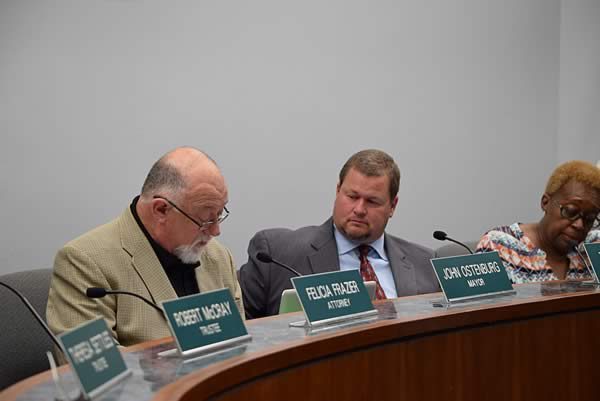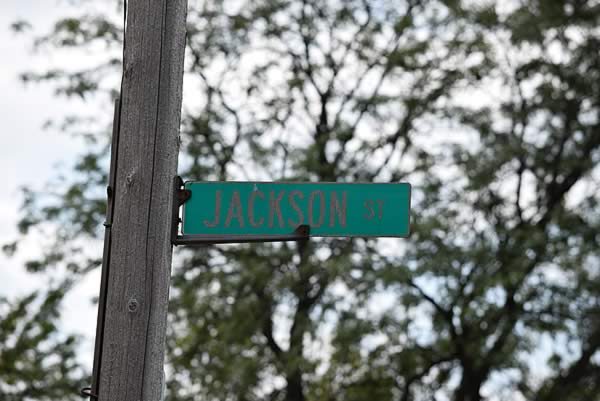
Park Forest, IL-(ENEWSPF)- Would you rest well knowing that the street on which you live was named after a Nazi? What if your street, or a neighboring street, was named after someone who not only owned slaves, but fought to secede from the United States to maintain his “state’s right” to keep slavery legal? Would you support the Village renaming streets if you discovered such a thing? Does it make a difference that, in an area of town dedicated to the memory of President Abraham Lincoln, streets are named to honor some who supported and fought for the Confederacy, the “right” to keep slaves?
The United States has seen neo-Nazis, members of the Ku Klux Klan, and other hate groups rally and hold marches and demonstrations as some U.S. cities removed statues of the Confederacy. The country has also seen a dramatic rise in the number of what the Southern Poverty Law Center classifies as “Hate Groups,” with numbers increasing almost exponentially as then state Sentaor Barack Obama sought, and later won, election for the U.S. presidency.
Given the recent violence in Charlettsville, Virginia, Mayor John Ostenburg charged a committee of the Board with considering alternative names for such streets in Park Forest. The effort might simply lead to the rededicaton of a current street, but renaming such streets will also be part of the discussion.
Committee “A,” chaired by Mayor Pro Tem and Trustee Mae Brandon, is charged with exploring possibilities. This committee includes Trustees Tiffani Graham, Robert McCray, and Georgia O’Neill.
“The committee will be considering a number of different possibilities, some of which have been suggested by citizens,” Mayor Ostenburg said Sunday, responding to an email from eNews Park Forest. “I had mentioned to the Board that renaming the streets named for Confederate officials for someone else with the same surname could be one alternative and one that would not require the U.S. Postal Service to change addresses, nor require residents of those streets to change their address listings with various agencies, etc. However, that simply was one of several different ideas for the committee to consider.”
At Monday’s meeting, the mayor spoke of ” the horrific occurrences in the City of Charlottesville, Virginia, one week ago this past weekend,” his first opportunity to do so at a Village Board meeting.
“As such, this is the first public occasion at which I – as mayor of the Village of Park Forest – can express my personal outrage at the manner in which some citizens of the United States of America donned regalia of two groups that hold distinction as being among the most hateful of modern times – the Ku Klux Klan and the Nazi party – and took to the streets of one of our country’s most historic cities to mock our nation by advocating for white supremacy and racial and ethnic division.” the mayor said.
“Furthermore, true to the malicious nature of those two groups, the modern-day purveyors of hate engaged in violent actions that resulted in the loss of life of an individual whose personal history was one marked – by contrast to that of her aggressors – by love and tolerance,” Mayor Ostenburg said.
Mr. Ostenburg referenced two Virginia state troopers who lost their lives. They had been assigned to helicopter duty “in order to oversee the demonstrations taking place on the ground,” Mr. Ostenburg said. They were “also victims of the Charlottesville demonstrations.”
The mayor said that on the Thursday, August 17, ” as one of approximately 40 elected officials from across this country who serve on the National League of Cities REAL Council – REAL being the acronym for Race Equity And Leadership,” he “participated in a conference call that focused on what happened in Charlottesville and on the importance of elected officials in all the cities of our nation promoting racial and ethnic equity and combating hatred.”
Mr. Ostenburg quoted Clarence Anthony, executive director of the National League of Cities, “No matter what name it travels under – white supremacy, white nationalism, anti-Semitism, Islamophobia, homophobia – racialized hatred is a virus that robs us of our safety and freedom.”

As such, Mayor Ostenburg announced a plan which includes three steps “that we will be taking here in Park Forest to demonstrate our opposition to the ‘racialized hatred’ of which Mr. Anthony spoke.”
The steps include (From the Mayor’s statement. Emphasis added.):
- We will be moving forward more aggressively in our efforts to explore the obstacles to racial equity that may be present in our Village, and to develop the necessary action steps for eliminating those obstacles and putting in place measures that make retribution for the wrongful results that such obstacles may have caused.
- I am asking the Park Forest Commission on Human Relations to undertake pro-active steps to promote racial interaction and harmony in our community by developing a Freedom Hall lecture series that addresses issues of race, including presentations by respected authorities on the subject, accompanied by interactive group discussion.
- I am assigning to Committee A – chaired by Mayor Pro Tem and Trustee Mae Brandon and including Trustees Tiffani Graham, Robert McCray, and Georgia O’Neill – the task of reviewing streets in Park Forest that are named for figures connected with the rebellious Confederate States of America, including Jefferson Davis, Robert E. Lee, Thomas “Stonewall” Jackson, and any others that may be determined, with the intent of renaming those streets; I am assigning Village Manager Tom Mick to serve as the staff liaison to the Committee for the undertaking of this work.
The mayor stressed that he has “no ill repute to the developers of the Village of Park Forest who were responsible nearly 70 years ago for the naming of the streets in question.”
” It was their intent and desire to name streets in the East and West Lincolnwood sections of our Village for places and persons who had some level of association with Abraham Lincoln and the Civil War,” he said. “Thus, selected some names connected to the Confederacy as well as far more that had Union connections. At this juncture, however, I believe it is time to correct their unintended error and remove those names from streets in our Village.”
The Committee is also charged to work with the U.S. Postal Services to assure that the proper procedures are followed for these changes, the mayor said.
Mr. Ostenburg addressed the political ramificatioins of making such a move, “No doubt some will say my actions are simply attempts to be “politically correct.” I respond to that by saying such critics are only half rights: yes, they are attempts at being correct [sic]. I long have been a believer in the principle that one is not culpable when he or she is ignorant of wrongdoing; however, once aware of wrongdoing, he or she is obligated to make every effort to set things right.”

Mr. Ostenburg then spoke of the rich history of the Village, “Finally, let me say this evening that Park Forest long has had a tradition for promoting tolerance as regards race, ethnicity, creed, sexual orientation and identification, and other types of personal adherence. For as long as I remain as mayor of this Village, I will do my most to assure that such a tradition continues.”
Park Forest may very well be the first city in the state of Illinois, and certainly one of the first in the nation, to bar housing discrimination on the basis of sexual orientation. This happened in 1985 with no controversy, even as other Illinois and U.S. cities addressed this issue years later.
The Southern Poverty Law Center monitors the activities of “domestic hate groups and other extremists – including the Ku Klux Klan, the neo-Nazi movement, neo-Confederates, racist skinheads, black separatists, antigovernment militias, Christian Identity adherents and others.”
The organization tracks “more than 1,600 extremist groups operating across the country, publishing “investigative reports, train law enforcement officers and share key intelligence, and offer expert analysis to the media and public.”
The SPLC has a Hate Watch Blog, and a Hate Map. The Hate Map reports that there are 917 hate groups currently operating in the United States. The Chicagoland area has a neo-Nazi group called the “America First Committee.” The Chicagoland area also has an anti-Muslim group, a few anti-LGBT groups, Black Separatist organizations, including the Nation of Islam, a Hate Music group, and, in Gurnee, the “Ku Klos Knights of the Ku Klux Klan.”
Regarding the Confederacy, “The term neo-Confederacy is used to describe twentieth and twenty-first century revivals of pro-Confederate sentiment in the United States. Strongly nativist and advocating measures to end immigration, neo-Confederacy claims to pursue Christianity and heritage and other supposedly fundamental values that modern Americans are seen to have abandoned,” the SPLC says.
Below is a graph from the Southern Poverty Law Center showing the steep rise in the number of hate groups as Illinois State Senator Barack Obama first sought election as, and later became, the nations first Black president.










